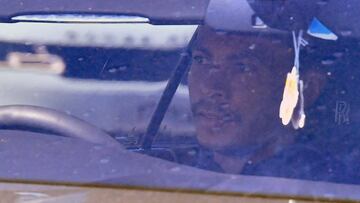What to expect from the Premier League’s socially-distanced return to training
With top flight clubs required to stick to Covid-19 distancing guidelines while training, what will the sessions look like and how will it affect the football on the pitch?


Premier League clubs were allowed to begin training again today, Tuesday, after yesterday’s ‘Project Restart’ meeting between clubs to discuss a return to competition after the suspension caused by the coronavirus pandemic. Not all teams returned today, however, and some players, notably Watford captain Troy Deeney, have confirmed that they will not be taking part due to safety concerns.
Small groups, limited time to avoid coronavirus spread
Teams have been told that players may only train in groups of up to five and for no longer than 75 minutes. They are also to maintain social distancing precautions as much as possible so any gameplay must be non-contact.
This is the first step as the league looks to gradually move towards a resumption of the 2019/20 season but their main aim at this time is to limit the possibility of Covid-19 cases in the game. Clubs have been given guidelines on what to do but are able to interpret them as they see fit.
A statement from Newcastle United revealed that that their ‘phase one’ training will see players and staff arrive at staggered, pre-arranged times and park at least three spaces apart to allow for social distancing requirements. Players will wear snoods over their mouths at all times and must arrive and leave in their training kit, meaning that they will not require access to the main training ground building.
Although clubs are being given some flexibility in their approach the Premier League will continue to monitor sessions and the league’s director of football Richard Garlick revealed that surprise checks could soon be introduced:
"We are looking at bringing in our own independent audit inspection team that we'll scale up over the next few days which will give us the ability to have inspections at training grounds to start with on a no-notice basis."
The BBC has also reported that GPS tracking systems and video analysis are being considered to ensure that clubs adhere to the new safety guidance.
What might the impact be on players’ fitness when the Premier League does return?
In such an unprecedented situation clubs’ medical staff will need to find a way to rebuild players’ match fitness while continuing to observe the social distancing guidelines. Physiotherapist Nick Worth has worked in professional football for over 20 years with England U21s and a number of Premier League clubs and spoke to AS English about the problems that clubs are facing:
“In pre-season you’ve got a plan that you’re preparing for months in advance and you’ll always know the date you’re going back.
“The difficulty with this is that throughout no one’s quite certain if the league will continue, and when that’s going to happen… It’s very difficult for clubs to manage players’ fitness because you don’t know whether to give them time off or keep them working.”
He also made comparison to the Bundesliga where games restarted last weekend but lacked the intensity and speed that Germany’s top flight has become known for.
“It’s going to take a while for players to get back to match fitness. Normally if someone’s coming back from an injury you’d put them in reserve games and things like that. You’re not going to get that opportunity here by the sound of things, so that first game back is going to be quite an unusual situation as you saw with the German leagues this week.”
Bigger clubs will be at an advantage
Physios and soft tissue therapists work extensively with some players to ensure they are match fit, with some requiring massages before and after training sessions. However with players now being kept in separate groups it will be harder for them to get the treatment that they need.
Related stories
“Some clubs have a massive staff that mean you could isolate groups quite nicely but some clubs won’t have those numbers of backroom staff so there might only be a few physios dealing with everyone... It does give clubs with bigger teams of backroom staff a bit of an advantage, because they can manage things in a better way”.
“Normally physios and soft tissue therapists are really hands on and they’ll be getting close to someone; well that can’t happen at this moment so you are risking the preparation of players being not as good as it would normally be.”